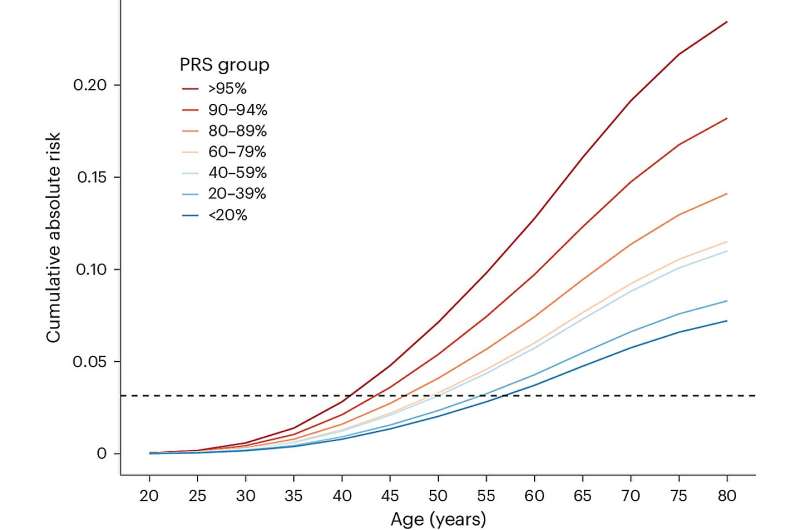This article has been reviewed according to Science X's editorial process and policies. Editors have highlighted the following attributes while ensuring the content's credibility:
fact-checked
peer-reviewed publication
trusted source
proofread
Breast cancer risk variants identified for women of African ancestry

A study led by researchers from Vanderbilt-Ingram Cancer Center sheds light on some of the genetic variants that make breast cancer more deadly for women of African ancestry and significantly reduces the disparity in knowledge for assessing their genomic risk factors.
The study, published in Nature Genetics, is the largest genome-wide association study ever conducted among women of African ancestry for breast cancer, the researchers said. Analyzing 18,034 cases and 22,104 controls of African ancestry, they identified genetic variants at 12 loci associated with breast cancer risk at the genome-wide significant level. Of those, variants in three loci were associated with risk of triple-negative breast cancer (TNBC).
Approximately 8% of African-ancestry women carry all six risk variants in these loci, and these women are 4.2 times more likely to be diagnosed with TNBC than those who carry none or only one of the variants.
The new data put women of African ancestry on a more equitable status with women of European and Asian ancestry for deriving breast cancer polygenic risk scores (PRS)—a calculation based on genetic markers and variants for assessing cancer susceptibility. Including the newly identified genomic markers into PRS analyses has significantly improved the performance of the prediction of breast cancer risk for women of African ancestry.
"We have worked with researchers from more than 15 institutions in the U.S. and Africa to establish this large genetic consortium. Data put together in this consortium have been and will continue to be used by researchers around the world to address significant questions related to breast cancer etiology and genetics," said the study's corresponding author Wei Zheng, MD, Ph.D., MPH, the Anne Potter Wilson Professor of Medicine and director of the Vanderbilt Epidemiology Center.
Breast cancer is the most commonly diagnosed cancer among women in the United States, and TNBC is a more aggressive subtype that women of West African ancestry are more likely to develop than women of other ethnic backgrounds.
Guochong Jia, Ph.D., MPH, a postdoctoral fellow at Vanderbilt University Medical Center, is the study's lead author.
Other Vanderbilt authors on the study are Jie Ping, Ph.D.; Xingyi Guo, Ph.D.; Ran Tao, Ph.D.; Bingshan Li, Ph.D.; Xiao-Ou Shu, MD, Ph.D., MPH; Tuya Pal, MD; Sonya Reid, MD, MPH; Oiuyin Cai, MD, Ph.D.; and Jirong Long, Ph.D.
More information: Guochong Jia et al, Genome-wide association analyses of breast cancer in women of African ancestry identify new susceptibility loci and improve risk prediction, Nature Genetics (2024). DOI: 10.1038/s41588-024-01736-4
















